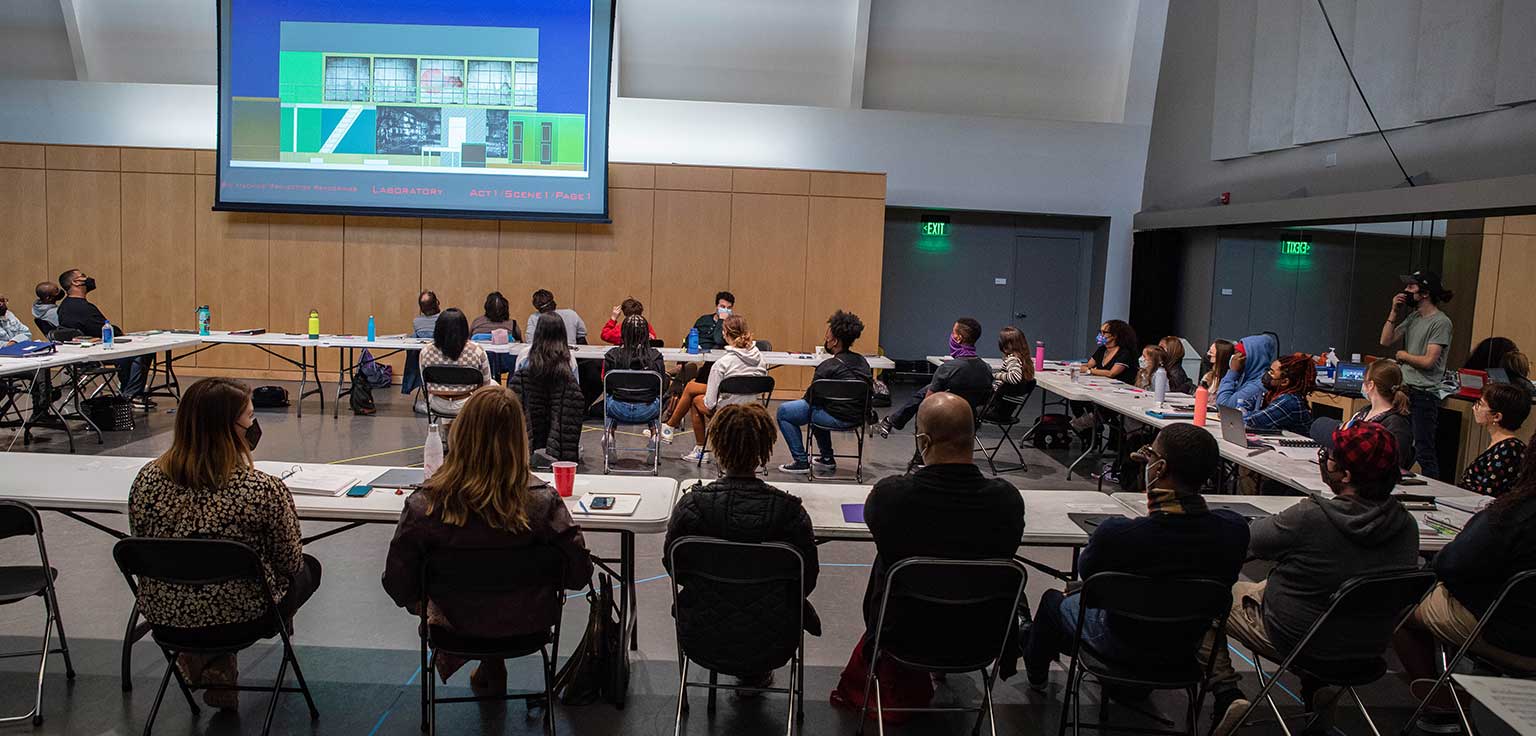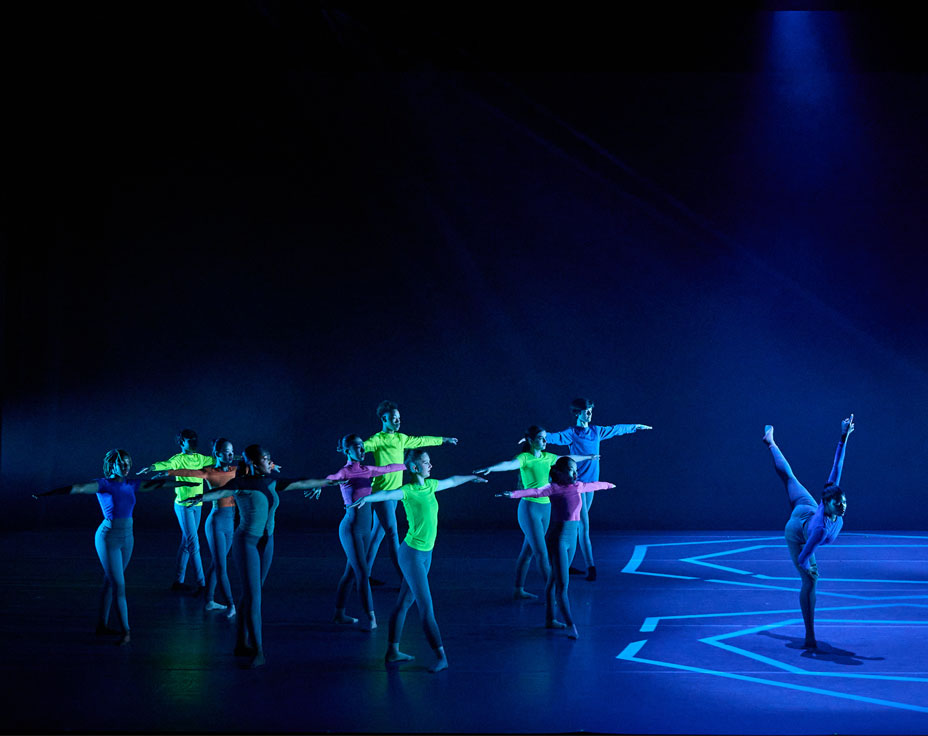As COCA’s new musical, Big Machine fka The Butterfly Room, officially starts rehearsals this week, our team sat down with Colin Healy, Big Machine’s composer, to discuss the inspiration behind the musical and how the story has evolved during the artistic process.
COCA: Tell us about this musical and the inspiration for you to begin to write it?
Colin: The original spark to write Big Machine came from a podcast I really like called The Dollop that is an American History podcast. They did an episode on Thomas Midgley, who has been coined as the man who harmed America the most. There’s an article out there called about him because he not only invented leaded gasoline, which for 60 years poisoned Americans within proximity of streets, but he also invented freon. He is kind of an unsung villain of American history in this comedic, horrifying, and sad way.
I didn’t want to write a story about Thomas Midgley. That’s not my style. I love historical fiction, but I really wanted to focus on the human elements. I wanted to pare down this story and talk about fictional people who were presented with the real situation caused by the atrocities that Thomas Midgley and friends created.
In doing research and through that episode of The Dollop, I came upon an incident in New Jersey, and there was also one in Ohio where workers got poisoned at an oil refinery because General Motors used them as guinea pigs for their product. People died. People went crazy. The effects of lead poisoning are wacky to the point of metaphorical—causing hallucinations, delusions of grandeur, and all this stuff.
It seemed like this perfect parallel of these workers experiencing euphoria in the workplace while they’re being subjugated in this blatant way. I wanted to write the story of those workers. We focused on one family unit, and we went from there.
COCA: Big Machine was formerly known as The Butterfly Room. Can you tell us about this evolution during the artistic process and why it changed?
Colin: The Butterfly Room, the original title to Big Machine, was based off one of the stories that took place at a factory in Ohio. The euphoria element was front and center. Some of the workers at this factory were hallucinating in a room full of butterflies and became protective of it. It caused a worker riot and was all due to this hallucination. Butterfly Room was a story about magic, this room off the beaten path, and the discovery to be made. It also was a good story.
As we progressed through developing characters, with Dramaturg Delaney Piggins, Director Nancy Bell, and my friends that that read my first drafts, we discovered over time through many, many iterations (I think there’s probably 80 drafts) that the more relevant story is the one about worker subjugation. We could play around with that euphoric versus subjugating element in a different or streamlined way that makes a more relevant story today in the wake of the great resignation and COVID-19, where we’re rethinking what it means to be in the workplace and what it means to have a boss.
We’ve instead shifted away from telling a story about a butterfly room to a story that is more about the machine, both literally the oil refinery Rube Goldberg contraption and our lead characters’ penchant for engineering. You know, like the metaphor that the machine that which we are, we are all a part of as capitalist partakers.
Tell us about working with young people in the cast and how that has changed the story so far.
Colin: Working with young people is always incredibly rewarding, both in terms of their surprise talents that they didn’t even know about and also their blunt honesty. So far, the joy of working with young people has been hearing them sing my music, which is really cool and incredibly rewarding in my own.
But moreover, that it also allows this story to be about another horrifying element of this that maybe isn’t illuminated so much in the Midgley story—and that is the fact that a lot of these workers were underage. In New Jersey, where this story takes place, child labor laws weren’t as stringent as they were in New York.
I’ve found it to be absolutely liberating to cast young people in this musical because I get to tell this hidden story, and that’s the most interesting kind of story to tell. It’s the one that people don’t really know and can’t really research on their own, at least in terms of like a cursory glance at American history.
One of the great things about working with a large creative team and cast of young people is that they can tell me when things I do can be better and there is no singular art.
COCA: You are one of only a few musical theatre composers in St. Louis. We want to hear about what your journey has been like to write musicals in St. Louis.
I consider myself extremely lucky and privileged to have my work performed on a professional stage. I’ve been writing a musical every year for the last four years—all of which have been produced. I served as the artist in residence at SLU for a little bit, and I am the artistic director of Fly North Theatricals, a company that produces new work professionally.
I moved to St. Louis by choice. St. Louis has such a huge talent pool and market for theatre and somehow this niche has remained untapped in a city renowned for its music. Those things somehow haven’t jived in a way that is prolific in this city yet.
Outside of COCA, I’ve written three musicals: The Gringo, Forgottonia, and Madam.
The Gringo and Forgottonia were written and workshopped here at COCA as part of the arts-based initiative program. COCA allowed people to rent space for reduced rates or free to elevate their work.
More recently, just before COVID-19 lockdown, we produced Madam which also was workshopped and had a staged public reading here at COCA. We had an outside director from New York, professional actors around St. Louis, and two COCA kids. The whole process was really neat.
And my fourth musical, Big Machine, is a different project than my last ones at COCA. The COCAwrites program fosters new work and is dedicated to training its students in the arts. It’s pretty neat that I get to be a part of it.
About Big Machine fka The Butterfly Room
At home in 1924, a girl has big dreams of going to college and breaking free of the factory town. Her brother takes a day job at a New Jersey oil refinery where he meets a rag-tag group of young workers for whom America is anything but booming. Big Machine recounts the real-life events surrounding the 1924 incident at Bayway Standard Oil through the lens of both those who worked there and those responsible.

